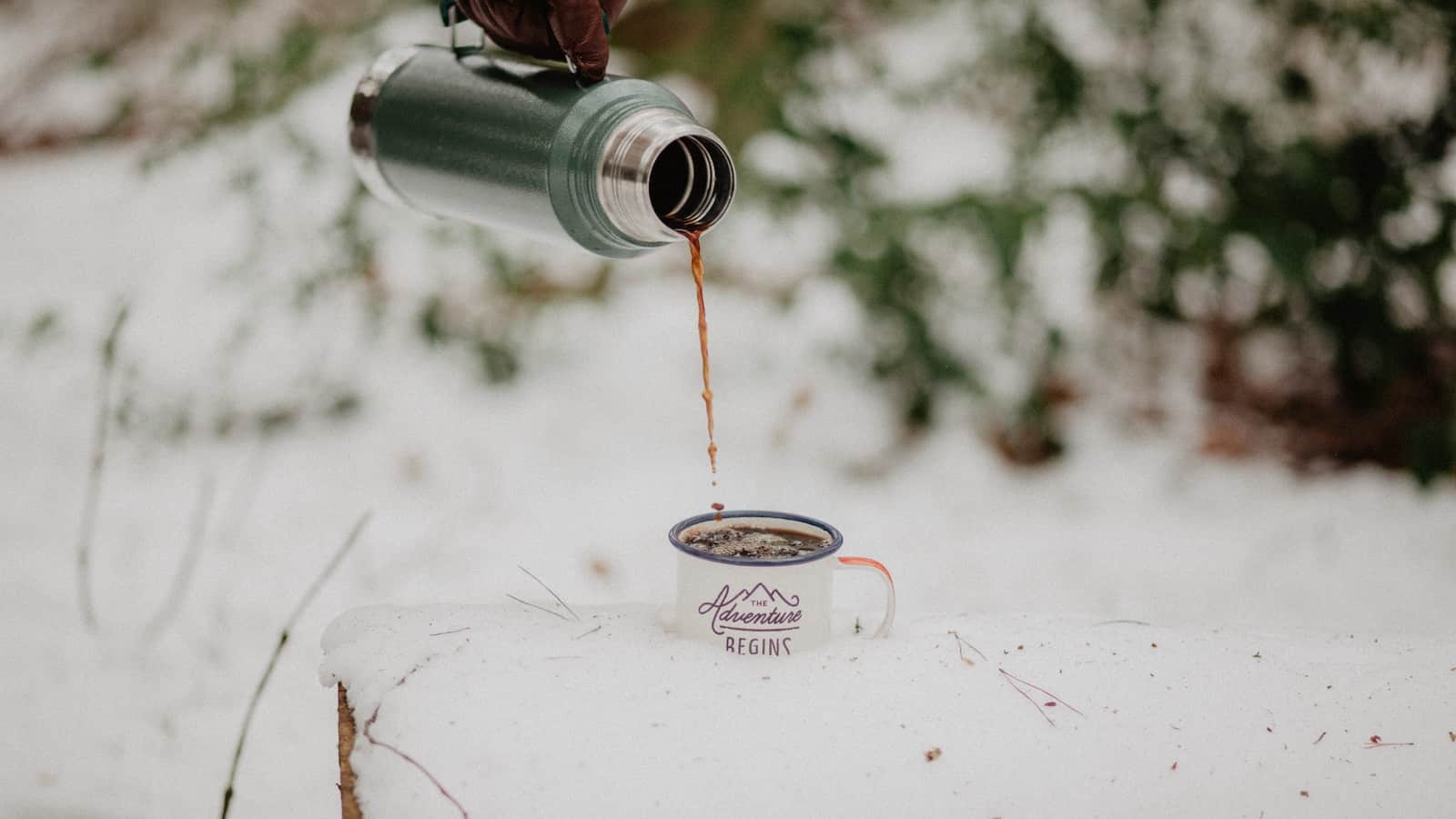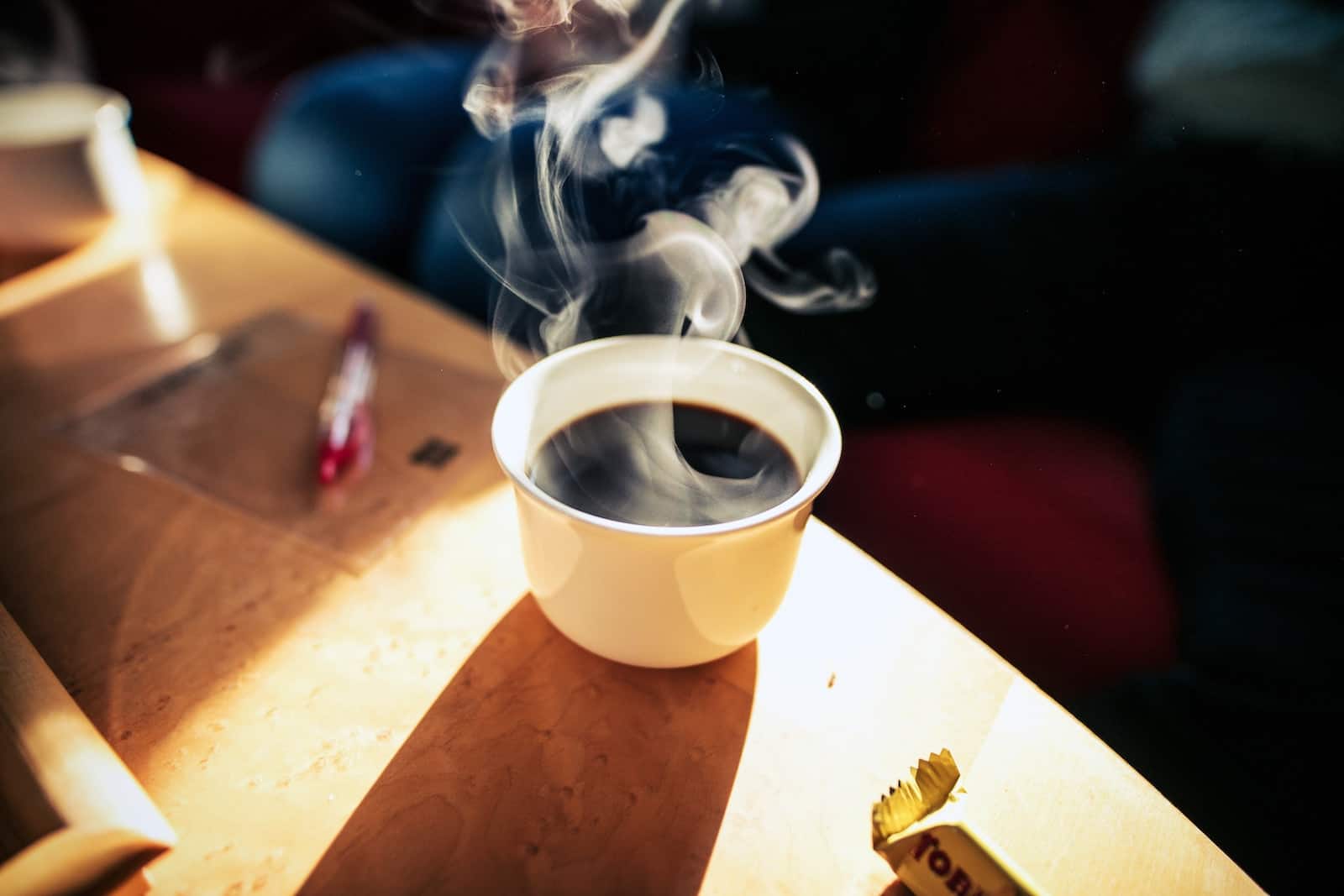How Long is Brewed Coffee Good For?
Ideally, you’d always be greeted with a fresh cup of piping hot (or ice cold) coffee – whether it’s right when you wake up or throughout the day.
But despite our coffee-centric culture in the states, hour-old, or even day old coffee can easily become the norm for coffee-lovers on the go.
Chances are, you’ve momentarily contemplated when your brew will turn from a delicious pick-me-up to a questionably dangerous, tangy, lukewarm disaster.
The obvious answer is that quality coffee is best while fresh, but how long is it actually good for?
It Starts with the Bean
It’s no secret that a delicious cup of coffee always starts with a fresh bag of high-quality coffee beans. But what some coffee-lovers may not realize, is that each bag of beans has a roast date. This date matters.
Although an older bag of coffee beans is usually safe to drink, a bag that hasn’t been collecting dust on your shelf will retain more flavors and aromas, producing a better cup of joe.
So, if you’re wondering how long your brewed coffee is good for, the first thing to take into account is whether or not you’re brewing mediocre or stale coffee beans.
The moral of the story is – If you truly love coffee, don’t neglect your beans.
What is Coffee Oxidization?
To really understand how long your coffee will survive, post brew, it’s important to understand a little bit of coffee chemistry.
Oxidation, the main culprit for stale or tasteless coffee, is more or less a fancy term that describes how your coffee’s molecular makeup shifts and changes when it comes in contact with oxygen.
In short, Oxygen can be a real coffee killer. Once your beloved beans meet the grinder, they immediately become more susceptible to the impacts of oxidation, including a loss of aroma and flavor compounds.
But the impact of oxidation doesn’t stop after the grind. You’ll quickly notice after your beans are brewed, the flavor of your cup begins to decay, rapidly, and the acidity in your cup amps up.
This is because when the coffee comes in contact with water, it begins to release natural acids and aromatics in to the water. The longer it sits, the more the coffee will extract and fall victim to excess oxidation.
How To Keep Brewed Coffee Fresher for Longer

The best cup of coffee will always be directly after the beans are brewed. However, there are a few things you can to slow the oxidation process and preserve your leftover brew.
1. Take the coffee off the hotpan
The fastest way to ruin a batch of coffee is by letting it sit in the coffee pot on a hotplate. The heat from the hotplate will continue to cook your beans, making them taste sour. Unless you’re a fan of burnt, bitter coffee, we recommend removing the coffee from the pot and the hotplate within the first 10-15 minutes.
2. Store brewed coffee in an airtight container
Keep that pesky oxygen at bay by storing your freshly brewed coffee in a stainless steel or porcelain, airtight container. Although we can’t guarantee the brew will taste as good as it did when it first hit your mug, it’ll definitely produce better leftovers than a batch that has been left on the kitchen counter.
3. Step away from the refrigerator
Unless you’re brewing and drinking cold brew, your freshly brewed beans don’t belong in a refrigerator. The extra moisture and condensation in your fridge will have similar (if not the same) consequences as oxidation.
How Long Will Brewed Coffee Really Last?

The answer to this question is largely based on the coffee-drinker. Some folks won’t mind a little extra bitterness in their brew. So, it’s worth noting that although old coffee may not be delicious, it generally isn’t dangerous.
After the first 20-30 minutes, you’ll begin to notice changes in the flavor profile in your cup. Over the next several hours, the coffee will become more acidic and will continue to dilute, but will be drinkable.
However, coffee can easily accumulate mold and bacteria. For that reason, we don’t recommend filling up your Friday canteen with Monday’s brew. In fact, we’d steer clear of coffee that is more than 24 hours old.
Conclusion
If you have the time and the patience, you’ll get a better cup of joe if you brew one small batch at a time. Unfortunately, we know that you don’t always have the luxury of hanging out by your coffee-maker all day.
So, if you have to drink the same batch of coffee all day long, find an amazing (and fresh) bag of beans and do your best to protect your brew from oxidation.